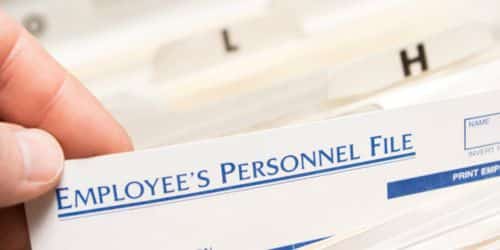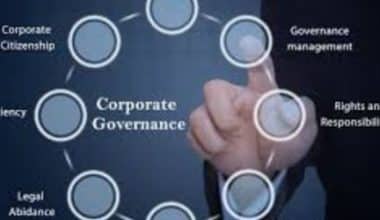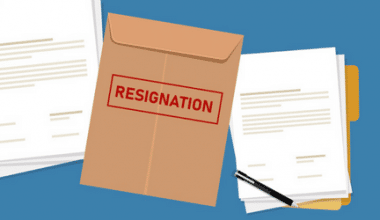Keeping accurate records of employee information is critical to human resource success. If you are a human resources manager, supervisor, or specialist, understanding the various types of records required for compliant documentation may be advantageous. Keeping up-to-date, legally compliant employee records can help you avoid potential lawsuits, promote consistency in your human resources department, and pass crucial information along to new hires. In this post, we address the importance of employers maintaining all employee records and look at five different types of employee records to keep, how long to keep, and updates inside your human resources department.
What are Employee Records?
Employee records are a collection of all information relevant to an employee, from the date of hire through the date of termination. This information may include the employee’s name, social security number, address, date of birth, position, salary, and benefits. Employee records are often maintained in the form of a personnel file.
These records may contain basic information gathered during the interview process, such as:
- Name
- Contact Information
- Experience in the Workplace
- Educational Background
- Credentials and certifications
- Interview Notes
- References
Employment records may also include information gathered throughout the hiring process, some of which companies are required by state and federal employment laws to check and keep on file, such as:
- Citizenship Status
- Social Security Number
- Payroll tax exemption
- Tax withholding status (W-4)
- Exempt or nonexempt status
- Photograph Identification
- Date of employment start
- Occupational title
- Pay scale
- Proof of occupational clearances and certifications
Records created over time can also be included in an employee’s personnel file or employment record, such as:
- Time clocks
- Performance evaluations
- Documentation of disciplinary proceedings
- Payroll records
- Information about the advantages
- Official photograph
Why are Employee Records Necessary?
Employee records are crucial since they provide official documentation of an employee’s employment history with a corporation. They feature information such as the employee’s job title, start date, salary rate, and any other employment-related information. Employee records are used to make choices on matters like promotions, raises, and terminations. They are also utilized at the end of the year to generate records such as W-2s and 1099s.
Why is it Critical To Keep All Types of Employee Records?
Keeping all types of employee records will substantially help your human resources department’s success and effectiveness. There are several significant advantages to preserving complete employee records, including:
#1. Observing legal requirements
Several regulations compel employers to keep certain records on file. These statutes were made possible by the following acts:
- Equal Employment Opportunity Commission (EEOC): According to the EEOC, you must keep all employee records for at least one year. You must keep the terminated employee’s records for one year after the date of their termination if they were fired involuntarily.
- The Age Discrimination in Employment Act (ADEA): requires you to keep payroll records for at least three years. You must also keep a record of benefit schemes, such as insurance and pension programs, for at least one year following an employee’s termination.
- Equal Pay Act (EPA) and Fair Labor Standards Act (FLSA): According to the FLSA and EPA, it is important to maintain records of justification for salary differences between employees of different genders. You must keep these records for a minimum of two years.
#2. Litigation avoidance
Keeping up-to-date, correct record is a key strategy for businesses to avoid potential litigation from former employees. For example, if a former employee files a lawsuit against an organization alleging that their employers did not pay them a living wage, payroll evidence might help rebut these accusations. Proper record-keeping also avoids any legal concerns with government entities that monitor labor-law compliance.
#3. Information dissemination
When new managers, whether in human resources, accounting, or general management, join your firm, having records of current and previous employees might be useful. This knowledge might be useful when onboarding new employees, developing new policies, and becoming acquainted with record-keeping procedures. Understanding each member of the staff’s job history might assist new managers adjust to their positions more effectively.
Different Types of Employee Records
Understanding the various types of employee records can assist you in ensuring that your human resources department appropriately documents critical organizational functions. There are five types of employee records that are important to maintain:
#1. Records of attendance
Attendance records contain information about each employee’s time spent at work. Attendance records could include the following information:
- Paid vacation
- Time off without pay
- Vacations Holidays
- Sick leave
- Working hours per week
- Tardiness/absences
Keeping accurate records of this information is critical for demonstrating that your firm paid employees the right amount of remuneration based on the length of time they spent at work. In addition to the topics listed above, the Family and Medical Leave Act (FMLA) requires employers to keep records of all paid and unpaid leaves, as well as cases of worker’s compensation.
#2. Records of benefits
Employers are required under the Employee Retirement Income Security Act of 1974 (ERISA) to keep a record of all employee insurance agency filings, employee participation, and individual beneficiary information for a minimum of six years.
Insurance companies, available plans, enrollment dates, and a list of all employees presently enrolled in business benefits are frequently included in benefits records. Updating these records after each enrollment period may be an efficient way to guarantee that your records are up-to-date and ERISA compliant.
#3. Training Records
For a variety of reasons, it is also vital to keep reliable training records. For starters, training records can serve as instructive guides for future onboarding initiatives. Second, the information obtained during training periods may serve as proof that personnel are ready for promotion or development in their careers.
There are also some nationally mandated criteria for some businesses in terms of how and how frequently training occurs. Keeping track of training programs and attendees might assist your firm in adhering to federal rules.
#4. Pay Withholdings
Keeping track of employee payroll withholdings is a critical step in the tax filing process. There are two primary advantages for businesses to keep track of payroll withholdings:
The IRS requires businesses to maintain records of all employee payroll withholdings for at least three years following the return date or filing date, whichever is later.
Accurate records can help disprove charges that a former company withheld too much in state or federal taxes from an employee.
#5. Unemployment Records
After being fired or laid off, an employee may apply for and receive unemployment benefits. It is critical to document each stage of the unemployment procedure and keep these records for as long as the employee is receiving unemployment benefits. The following details should be included:
- Employee Name
- Employee name Employee address Employee social security number
- Dates of hire, separation, or rehire
- Dates of payment for cash and non-wages
- Worked dates
- Working hours
If any of your employees get unemployment benefits, keeping a meticulous record of this information is critical for confirming their weekly benefit files. If there is a disagreement between your records and the employee’s supplied information, the employee may lose access to their benefits. Accurate unemployment records can help ensure that your laid-off or terminated employees receive the benefits to which they are entitled.
What are the Benefits of Keeping Employee Records?
Employee records have numerous advantages for both the company and the employee. Employee records can help employers track employee performance over time, identify areas where employees need to improve, and document disciplinary actions. These records can also assist firms in meeting regulatory regulations. Employee records can give a record of career history and experience, as well as training and education, of the employee. Employee records can also aid in the qualification of employees for promotions or other job possibilities.
Best Practices for Keeping Employee Records
Although some best practices are universal for well-managed firms, the manner a company produces and maintains employment records is not standardized across industries. At the most basic level, a corporation is required to maintain personnel records that contain enough information to ensure compliance with state and federal employment regulations applicable to that industry. Some federal and state employment laws also increase a company’s record-keeping duties in proportion to the number of employees it employs.
Aside from fundamental legal compliance, recommended practices for designing an employee records system that covers all bases often include:
#1. Specifying what constitutes a record.
Not every scrap of paper qualifies as an employment record. Determining which papers should be kept in a file in order to meet legal responsibilities and protect the organization from responsibility should be done from the start.
#2. Creating a retention plan.
It is difficult to keep employment records for every previous and current employee in perpetuity. Federal laws specify how long a firm is required to keep certain employment records after an employee leaves the organization. Based on these legal obligations, a corporation should create a document retention schedule that eliminates obsolete information while maintaining all relevant content.
#3. Restriction of access.
Employment records should only be accessible to authorized people. Establishing access protocols protects both the organization and the employee from information misuse.
#4. Choosing a format and storing it.
Employment records can be stored in traditional paper format in a file cabinet system, in digital format by scanning original documents into a computer system, or a combination of the two.
Determining where employment records will be stored and how they will be accessed is an important step in designing a functional system. Many computerized accounting solutions, for example, may accept employee information for payroll reasons, which meets many federal and state employment law standards.
#5. Keeping security and privacy intact.
Maintaining the security and privacy of the data is a key part of information collection. Whether it’s keeping the employment records room locked or using the newest encryption to prevent hackers from accessing the system, the organization must take efforts to ensure that only authorized people have access to an employee’s information.
Which Employment Records Must Be Kept Separately?
Certain records necessitate particular privacy safeguards mandated by federal law. To protect employers from liability, these employment records should be maintained separate from an employee’s basic personnel file and granted a higher level of protection with very limited access. Among these records are:
#1. Medical records
Employers are required by the Americans with Disabilities Act to keep medical-related papers separate from general records in order to maintain the confidentiality of an employee’s medical information. This includes drug and alcohol testing results, workers’ compensation claims, health insurance enrollment, physical problems or disabilities, and fitness-for-duty outcomes.
#2. Credit Information
Employers are required by the Fair Credit Reporting Act to maintain the confidentiality of consumer-related credit information, credit reports, and personal financial data. If an employer obtains a credit report to establish the fitness of potential hiring or to assure an employee’s ongoing financial responsibility, the records must be maintained separately from the employee’s main file and kept confidential.
#3. Lawsuits and complaints.
Documents pertaining to any employee complaint filed under the internal corporate policy, through a government agency such as the United States Equal Employment Opportunity Commission, or through a lawsuit must be collected and retained until the claim or action is entirely resolved.
How Do You Handle Employee Records?
To handle employee records, a company must first create a system for recording employee information. This information should include the employee’s name, social security number, date of birth, address, and phone number, among other things. In addition, the system should record the employee’s job title, department, salary, and benefits.
Once the system is in place, the company must create a policy for handling employee records. The policy should state who is responsible for tracking and keeping employee information, how long it should be kept, and how it should be disposed of when no longer required.
The firm must also educate employees on how important it is to keep their information current and confidential. Employees should be warned not to give out their Social Security number or any other sensitive information to anyone other than their employer.
A method for notifying employees of changes to their personal information, such as a change of address or phone number, should also be in place at the company. A method for updating employee information in the organization’s database should also be included in this system.
What Type of Companies Requires Employee Records?
Building employee records is necessary for many different types of businesses. Companies with a high number of employees must usually keep track of employee information in order to administer payroll and benefits.
Companies that are growing must also keep track of employee information in order to ensure that new employees are appropriately integrated into the organization. Furthermore, companies that hire a large number of employees at once may need to keep track of employee information to ensure compliance with all applicable employment laws.
Related Articles
- RECORDS MANAGEMENT: Definition, Lifecycle, and Software Solutions
- CORPORATE RECORD BOOK: Meaning, Importance & How to Get It
- HR SERVICES FOR SMALL BUSINESSES: Functions & Examples of HR Services
- RECORDS MANAGEMENT SYSTEMS: Best 15 Software Options In 2023
- HOW TO GET A BANK STATEMENT FROM YOUR BANK






